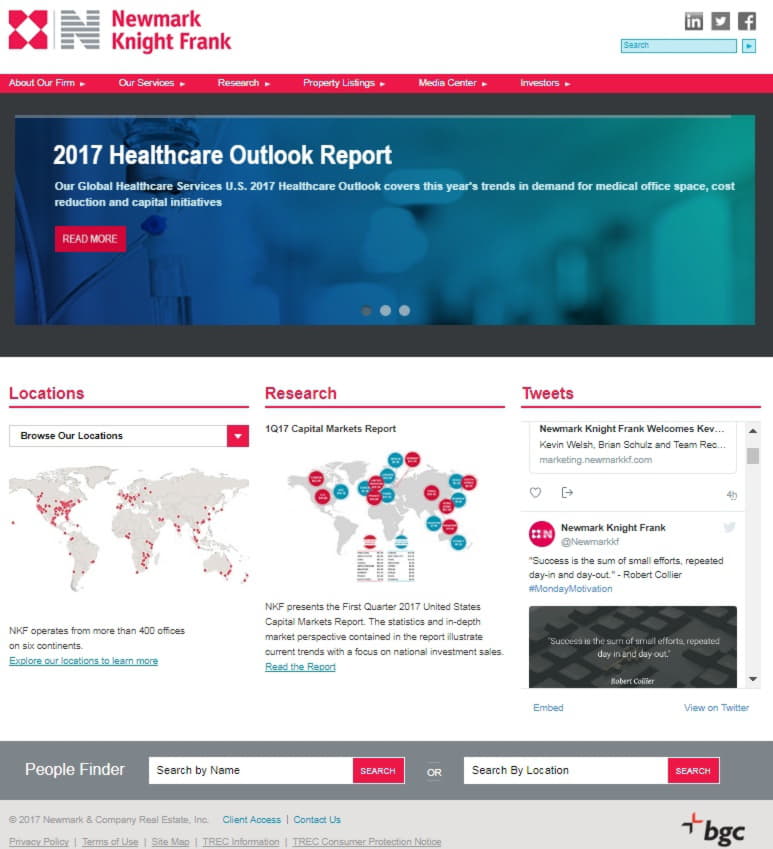
Kurt Foreman
Click here for Part I & Part III
Cultivating Delaware’s economic ecosystem of emerging businesses
Kurt Foreman is President and CEO at Delaware Prosperity Partnership (DPP). Launched in 2017, DPP acts as the lead economic development resource for entrepreneurs, employers, and emerging businesses in Delaware. The nonprofit organization is dedicated to building the local business ecosystem by attracting, supporting, and retaining growth-oriented enterprises to the state. Key industries served include science and technology, business and financial services, food and agriculture, manufacturing and logistics, education, and healthcare.
EDWIN WARFIELD: What about Delaware stokes your enthusiasm for economic development?
KURT FOREMAN: Delaware is known worldwide as the place, or one of the most prominent places, to incorporate your business. For most of us, when you hear “that’s a Delaware Corporation” or “Delaware LLC,” that sort of goes over our heads. It is not something we really think about, but the reality is that the hundreds of years of practice of commitment, the way our courts are set up, the knowledge of our judges, the knowledge of our professional services community—those kinds of things are not trivial. In fact, there are a lot of people that would like to be that place and I think there’s a secret sauce or something that has just come from doing it well for so long that we have that reputation. Can we be the place where we’re registered, or can you be the place where you’re registered and operating? We think the second is the case. Our job is to leverage those core capabilities, and hopefully those companies will say not only are we going to be connected there but we’re going to operate from there. I think that gives us an opportunity that really nowhere else in the world has, which is “we’ve got our first hook into these companies—can more of them, over time, not only incorporate out of Delaware but can they operate out of Delaware?” We are having those conversations everyday with companies of all sizes. It is not just today’s Fortune 1000 or something but who are going to be some of the future Fortune 1000 and maybe Delaware is going to be a key piece for their future.
Where most of the action is happening is where things are touching each other or connect to each other: disparate industries that might have a connection point, or places where disruption is happening, where their industry may be touched by technology or be touched by another sector that you wouldn’t think have an impact. From a shorthand process, we often tag “tech” on the end of that. We have fintech, agtech, chemtech—a lot of other things related to that. We think we are a place where those things are going to touch and connect.
On the Fintech side, we’ve got a 30- or 40-year history of being an innovator and supporter of the broader financial services, where most of the action today in financial services is happening is where technology is creating more capabilities, new platforms, new ways to deliver product to the customer—sometimes on your cell phone or your computer or whatever—why not be the place where that’s happening? And in fact, we’re seeing a lot of that, whether it’s a company like College Ave or Marlette Funding, or a company like Fair Square Financial which has a credit card product. They’ve gone from a handful of people to nearly 70 people in a short time, brought in $300 million of outside equity into the company and are an extremely fast-growing company.
The other side of that equation is it’s not all small companies. JP Morgan Chase has nearly 11,000 employees in Delaware. We’re one of their big hubs in the world, and they probably came years ago because of our credit card rules but have a huge technology center in Delaware and are doing very innovative things.
The Fintech space often gets pegged as entrepreneurial or small companies, but the reality is many of our largest financial services companies in the world are Fintech incubators themselves. They’re creating their own products for their own portfolios, and we think those companies—many of them have bases in Delaware—will be key.
Connect with Kurt on LinkedIn
Sponsored by:
ABOUT NEWMARK KNIGHT FRANK
Newmark Knight Frank (NKF) is one of the world's leading commercial real estate advisory firms. Together with London-based partner Knight Frank and independently-owned offices, NKF's 15,000 professionals operate from more than 400 offices in established and emerging property markets on six continents.
With roots dating back to 1929, NKF's strong foundation makes it one of the most trusted names in commercial real estate. NKF's full-service platform comprises BGC's real estate services segment, offering commercial real estate tenants, landlords, investors and developers a wide range of services including leasing; capital markets services, including investment sales, debt placement, appraisal, and valuation services; commercial mortgage brokerage services; as well as corporate advisory services, consulting, project and development management, and property and corporate facilities management services. For further information, visit www.ngkf.com.
NKF is a part of BGC Partners, Inc., a leading global brokerage company servicing the financial and real estate markets. BGC's common stock trades on the NASDAQ Global Select Market under the ticker symbol (NASDAQ: BGCP). BGC also has an outstanding bond issuance of Senior Notes due June 15, 2042, which trade on the New York Stock Exchange under the symbol (NYSE: BGCA). BGC Partners is led by Chairman and Chief Executive Officer Howard W. Lutnick. For more information, please visit www.bgcpartners.com.


Edwin Warfield, CEO of citybizlist, conducts the CEO Interviews.
If you're interested in reaching CEOs, please contact edwin.warfield@citybuzz.co
Connect on LinkedIn










